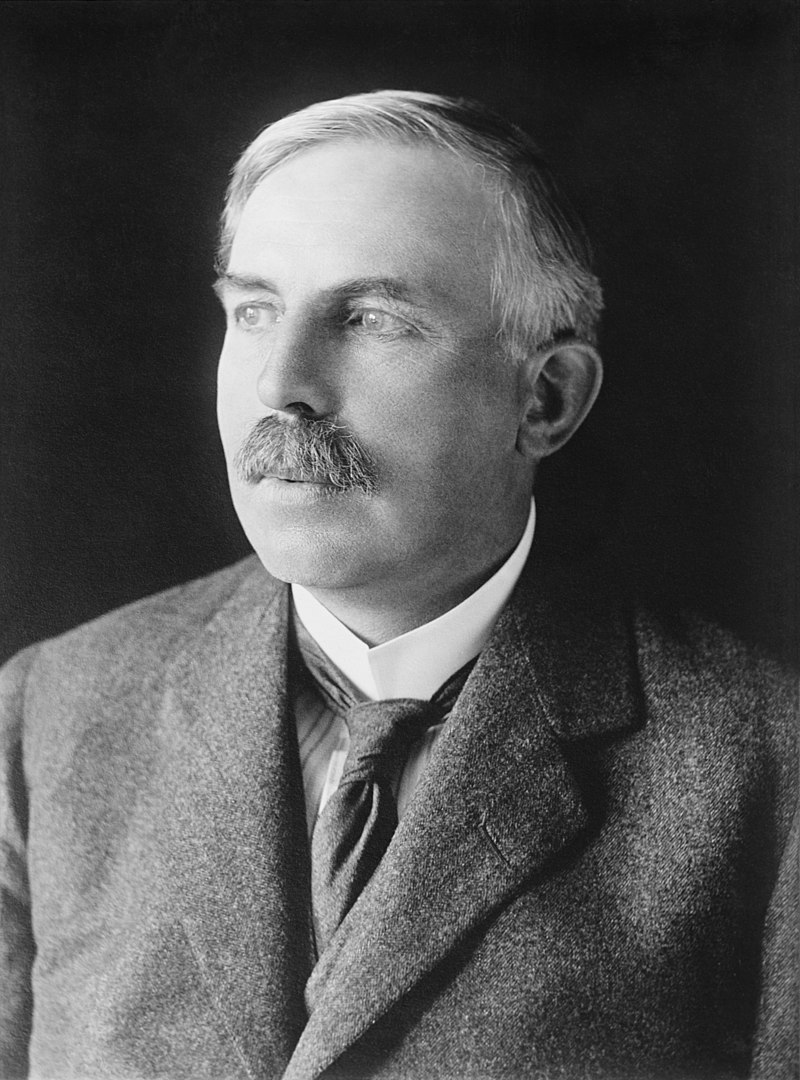
Ernest Rutherford
Ernest Rutherford was a New Zealand physicist known as the father of nuclear physics. His groundbreaking work in the early 20th century led to the discovery of the nucleus and the concept of the atom being divisible, revolutionizing the understanding of atomic structure. Rutherford's experiments, particularly the gold foil experiment, established the nuclear model of the atom, and he was awarded the Nobel Prize in Chemistry in 1908 for his achievements.
Born on Aug 30, 1871 (154 years old)
Global Media Ratings
Countries Mentioned
No country-level mention data available.
Interactive World Map
Each country's color is based on "Mentions" from the table above.
Recent Mentions
 Australia:
Ernest Rutherford was a pioneering physicist who won the Nobel Prize for physics in 1908.
9
Australia:
Ernest Rutherford was a pioneering physicist who won the Nobel Prize for physics in 1908.
9
 Croatia:
Ernest Rutherford's early work on nuclear physics is discussed in Plohi's new book.
6
Croatia:
Ernest Rutherford's early work on nuclear physics is discussed in Plohi's new book.
6
 Russia:
Ernest Rutherford is among the famous Nobel Prize winners in Chemistry.
9
Russia:
Ernest Rutherford is among the famous Nobel Prize winners in Chemistry.
9
 Switzerland:
Ernest Rutherford was a critical voice regarding the potential of nuclear technology.
5
Switzerland:
Ernest Rutherford was a critical voice regarding the potential of nuclear technology.
5
 United States:
Ernest Rutherford was a physicist whose work contributed to the understanding of nuclear physics.
7
United States:
Ernest Rutherford was a physicist whose work contributed to the understanding of nuclear physics.
7
 Guatemala:
Ernest Rutherford proposed the nuclear model of the atom, contributing to the advancements in nuclear physics.
8
Guatemala:
Ernest Rutherford proposed the nuclear model of the atom, contributing to the advancements in nuclear physics.
8
 Greece:
He is considered the father of nuclear physics and served as director of the Cavendish Laboratory for nearly two decades.
9
Greece:
He is considered the father of nuclear physics and served as director of the Cavendish Laboratory for nearly two decades.
9
 Greece:
Ernest Rutherford confirmed to Bohr that atoms could not exist within the framework of classical physics.
7
Greece:
Ernest Rutherford confirmed to Bohr that atoms could not exist within the framework of classical physics.
7
 Greece:
Ernest Rutherford conducted research on the structure of the atom, revealing surprising facts about its composition.
8
Greece:
Ernest Rutherford conducted research on the structure of the atom, revealing surprising facts about its composition.
8
 Greece:
Ernest Rutherford is considered the father of experimental nuclear physics.
9
Greece:
Ernest Rutherford is considered the father of experimental nuclear physics.
9
